October 29, 2024
If you’ve been crushing your workouts, dialing in your diet, and doing everything “right,” but the scale still won’t budge—or worse, it’s creeping up—you’re not alone.
It’s frustrating to put in the weight loss work and see little to no results. The truth is, it might not be your willpower or effort that’s holding you back. There are hidden factors that could be silently sabotaging your fat loss, making it feel like an uphill battle.
In this article, you'll get to discover *exactly* why your body seems resistant to weight loss (even when you’re doing everything that’s “supposed” to work). Sure, diet and exercise are important, but they’re only part of the equation. If your hormones are out of whack, you’re exposed to too many toxins, or your body isn’t getting the right nutrients, all the clean eating and HIIT sessions in the world won’t get you the results you’re after. It’s time to look beyond the basics and dig deeper into what might be going on inside your body.
I’ll break down how things like estrogen dominance, toxin buildup, and nutrient deficiencies can make fat loss nearly impossible—even for the most dedicated. Plus, you’ll learn how to tackle these issues, from balancing your hormones with the right foods and supplements to detoxing your body from the environmental chemicals that are stored in fat cells.
It’s not just about working harder—it’s about working smarter by addressing the root causes that have been holding you back.
By the end of this article, you’ll have a solid understanding of what’s truly standing in the way of your fat loss and a clear path forward. Whether it's tweaking your diet to include more hormone-balancing foods, addressing hidden food sensitivities, or boosting your thyroid function, you’ll walk away with actionable steps to optimize your body from the inside out.
Let’s dive in and crack the code to finally unlock your body’s potential for lasting fat loss.
Key Takeaways
- Hormonal disruptions caused by factors like environmental toxins, poor diet, stress, and lack of sleep can hinder weight loss, especially in women due to estrogen dominance as they age. Key strategies to combat this include dietary changes such as eating cruciferous vegetables and healthy fats.
- Environmental toxins like BPA, DDT, and other pollutants accumulate in fat tissue, making it harder to lose weight. Detox strategies, including using glass or stainless steel instead of plastic and filtering drinking water, can help minimize the damage caused by these chemicals.
- Food sensitivities and intolerances can lead to chronic inflammation, fatigue, and insulin resistance, indirectly contributing to weight gain. Proper testing and elimination of problematic foods can improve overall health and support weight loss.
- Deficiencies in key micronutrients such as vitamin D, magnesium, and biotin can impair metabolic functions, leading to fat storage. Personalized micronutrient testing can help identify deficiencies and optimize nutrition for better fat loss results.
- An underactive thyroid (hypothyroidism) can slow metabolism and lead to weight gain. Managing stress, avoiding extreme dieting or overtraining, and supporting thyroid function with nutrient-dense foods and supplements can improve metabolism and aid fat loss.
6 *Surprising* Reasons You're Struggling to Lose Weight (& How to Fix Each Issue)
1. Hormonal Imbalances
Endocrine disruption and hormonal imbalances can occur when you’re as young as your early twenties and can be caused by exposure to chemicals such as pesticides and plasticizers; external stress such as relationship or financial problems; internal stress such as viruses, heavy metal accumulation, and blood sugar swings; dietary contaminants; deficiencies in critical micronutrients; lack of sleep; and poor digestive health.
When hormones are disrupted, metabolism slows, appetite rages, and inflammation manifests.
Although both men and women struggle with hormonal imbalances, women seem to have more trouble with imbalances that specifically cause resistance to fat loss. For example, the hormone estrogen is higher in women and promotes cell division, cell growth, and, in excessive amounts, the formation of fat tissue. Women also naturally produce more progesterone, which protects against such excessive fat growth.
Problem is, progesterone production declines much faster with age than estrogen production, so between ages thirty and fifty, a woman can develop estrogen dominance.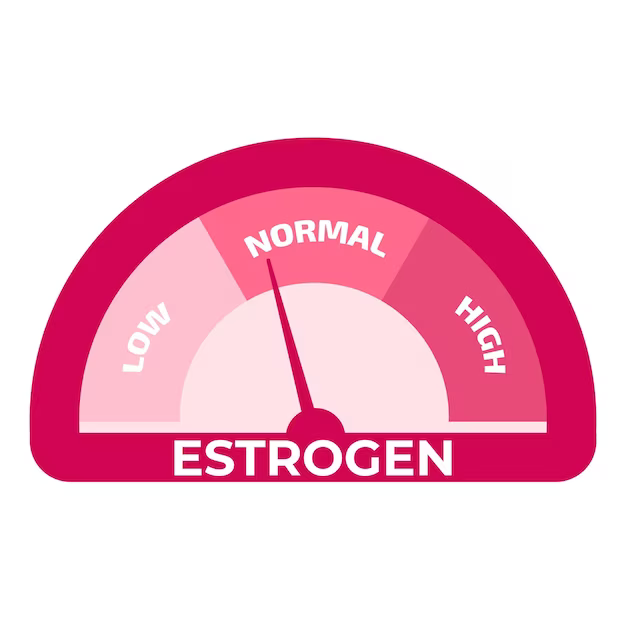
At that point, there is potential that fat rapidly accumulates and becomes much harder to lose. Of course, men can experience similar age-related issues as testosterone falls and estrogen rises.
There are steps you can take to minimize the effects of hormonal imbalances (you can check out my recent podcast with Dr. Amie Hornaman for more insights on this topic). But first, it’s best to determine whether a hormonal imbalance is causing weight-loss resistance. Some blood tests give you a snapshot view of your hormone levels at a single moment, but you can test for hormonal imbalances that occur throughout a twenty-four-hour cycle with the DUTCH urine test.
If you do find hormonal imbalances after receiving the results of your DUTCH panel, or if you suspect a hormonal imbalance is keeping you from losing weight, I recommend working with a functional medicine practitioner to balance your hormones with supplements, medications, or both, but you can also make key lifestyle and dietary changes to mitigate the damage, including a few of the following examples.
*A quick reminder: I am not a physician, so please do not consider any of the information or links provided in this article as medical advice or prescription. I thought it would be beneficial and interesting for you to have access to this information on weight loss, though!
HORMONE STRATEGY #1: EAT MORE CRUCIFEROUS VEGGIES AND FATS
Cruciferous vegetables include broccoli, cauliflower, Brussels sprouts, and cabbage. They contain indole-3-carbinol, an antioxidant that metabolizes excess estrogen. In addition, since cholesterol and fat-soluble vitamins support hormone health, ditch a fat-phobic approach and embrace a healthy intake of clean fish, eggs, avocados and avocado oil, olives and olive oil, raw unsalted nuts like macadamias and pistachios, nut butter, pumpkin seeds, flax seeds and flaxseed oil, and chia seeds.
HORMONE STRATEGY #2: FILTER YOUR WATER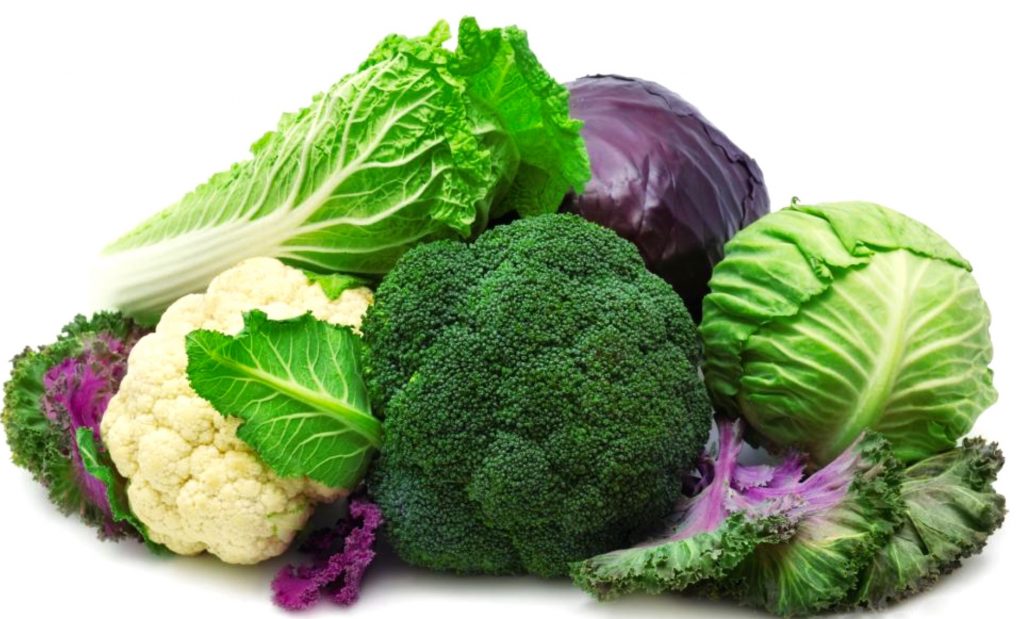
Heavy metals and chemicals like fluoride (which is a registered insecticide and rodenticide) found in drinking water can damage the endocrine system. You can eliminate these metals and chemicals by installing a drinking water filtration system, such as a reverse osmosis filter or carbon block, in your home. You can get a unit with a built-in remineralizer to refortify your water with good minerals like calcium, magnesium, and potassium, or just add extra electrolytes and good salts to your water and food throughout the day.
HORMONE STRATEGY #3: USE GLASS OR STAINLESS-STEEL PRODUCTS INSTEAD OF PLASTIC
Chemicals that interfere with hormones, like BPA, can seep from plastic bottles and cups into drinking water and food. I recommend reading the book Estrogeneration by Anthony Jay for more information on how plastic exposure affects estrogen.
For more information on balancing your hormones, I recommend checking out these additional resources:
- Best Of Hormone Health: How To Stop Hormonal Weight Gain, The Truth About Birth Control, How To Optimize Your Testosterone Levels & More
- Revolutionary Hormone Hacks: Bioidentical Hormone Therapy A Cancer Risk? (You’ll Be Surprised!) — With Karen Martel
- The Cost Of Being A Bad-Ass – How To Cure Your Hormones With Dr. Sara Gottfried
- 4 Things Your Saliva Can Tell You About Your Hormones.
2. Exposure to Toxins and Chemicals
You should know about the fascinating website slimemoldtimemold.com (not the most appealing name, I’ll admit). Over a dozen long-form articles, the website provides reams of research and solid evidence that environmental factors, specifically toxins, play a significant role in the obesity epidemic, delving into the hypothesis that toxins in our environment, food, and products disrupt metabolic processes, leading to increased fat storage and weight gain.
This perspective obviously challenges conventional wisdom on obesity, which often focuses solely on diet and exercise, by highlighting the complex interplay between our bodies and the contaminated world we inhabit.
Through an examination of historical data, scientific studies, and patterns of disease distribution, there is a compelling case to be made that addressing obesity requires an approach that includes reducing exposure to toxins and chemicals, which makes perfect sense because one of the ways your body deals with toxins is to create new and bigger fat cells in which to store those toxins.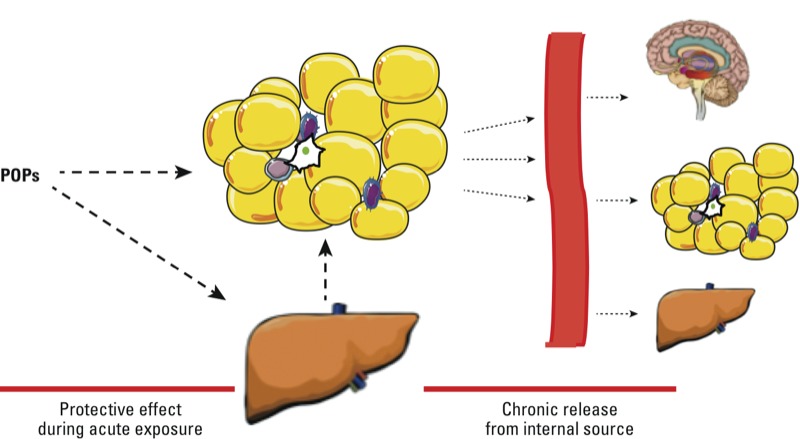
Three-letter-acronym toxins like PCB, DDT, DDE, and BPA, and my favorite—persistent organic pollutants (POPs)—have been found in concerningly high concentrations in human fat tissue and cause significant metabolic damage, hormonal imbalances, and even more fat storage.
Your body shovels these compounds into adipose tissue to protect other functional tissues and your internal organs. If you store too many toxins and nondegradable chemicals in fat tissue, you will have a much harder time losing weight, no matter how much you exercise, how much clean food you eat, or how much cold exposure you get.
This is also why a rapid fat-loss regimen often results in skin rashes, zits, and diarrhea: as you mobilize fat, you also mobilize the toxins it contains. The toxins cause other symptoms unless they are dealt with via a detox protocol.
Filtering your water, using good glass bottled water like this or stainless steel instead of plastic, using natural beauty and cleaning products, and engaging in regular detoxification via sweating, exercise, and healthy bowel movements are strategies to minimize toxin and chemical damage. You can also take steps to minimize uncomfortable side effects, such as irritability and inflammation, that can occur as chemicals and toxins get mobilized from fat and released back into your circulatory system.
A full spectrum of whole-food antioxidant sources can be beneficial in eliminating the free radicals and oxidants that cause cellular damage and accelerate aging. Plus, if you get some of your antioxidants from plant sources such as dark berries and leafy greens, then you will also get more satiating and lipid-managing fiber in your diet. Fiber acts like a sponge and can soak up toxins from your system as they are released. For this reason, while on any fat-loss regimen, you should aim for 35 to 60 g of fiber per day from organic produce, berries, and a limited amount of larger fruits, seeds, and nuts.
For additional tips on eliminating toxins from your body, you can check out these articles and podcasts:
- The *Unbelievable* Story Of the 185-Year-Old Yogi (& His Exact Longevity Protocol!), How To Fully Cleanse The Body In 28 DAYS, Enema Science & More With Dr. Chiti Parikh
- How to Protect Your Body from the Ten Hidden Killers in Your Home (Fully Updated Version).
- The Hidden Truth Behind Toxins, Detoxification & Detox Diets.
- The Ultimate Detoxification Guide: How To Use Supplements, Saunas, Skin Brushing & More To Quickly & Safely Clean Up Your Body: An Official “RUNGA” Q&A.
3. Food Allergies and Intolerances
Food allergies and intolerances can have a ripple effect when it comes to weight gain. While there isn’t research demonstrating that these issues directly cause people to put on extra pounds, the reactions you experience as a result of them can indirectly lead to weight gain.
For example, if you experience brain fog, lethargy, and gut upset in response to your diet, your daily activity level and motivation may decrease dramatically, leading to higher numbers on the scale. Chronic inflammation caused by a response to food can also result in insulin resistance, which subsequently leads to weight gain.
If you have a food allergy, then you probably know it. Food allergies are accompanied by severe symptoms such as throat swelling and respiratory distress—as you may know from a friend who needs to be within a stone’s throw of an ambulance if he so much as sniffs a peanut.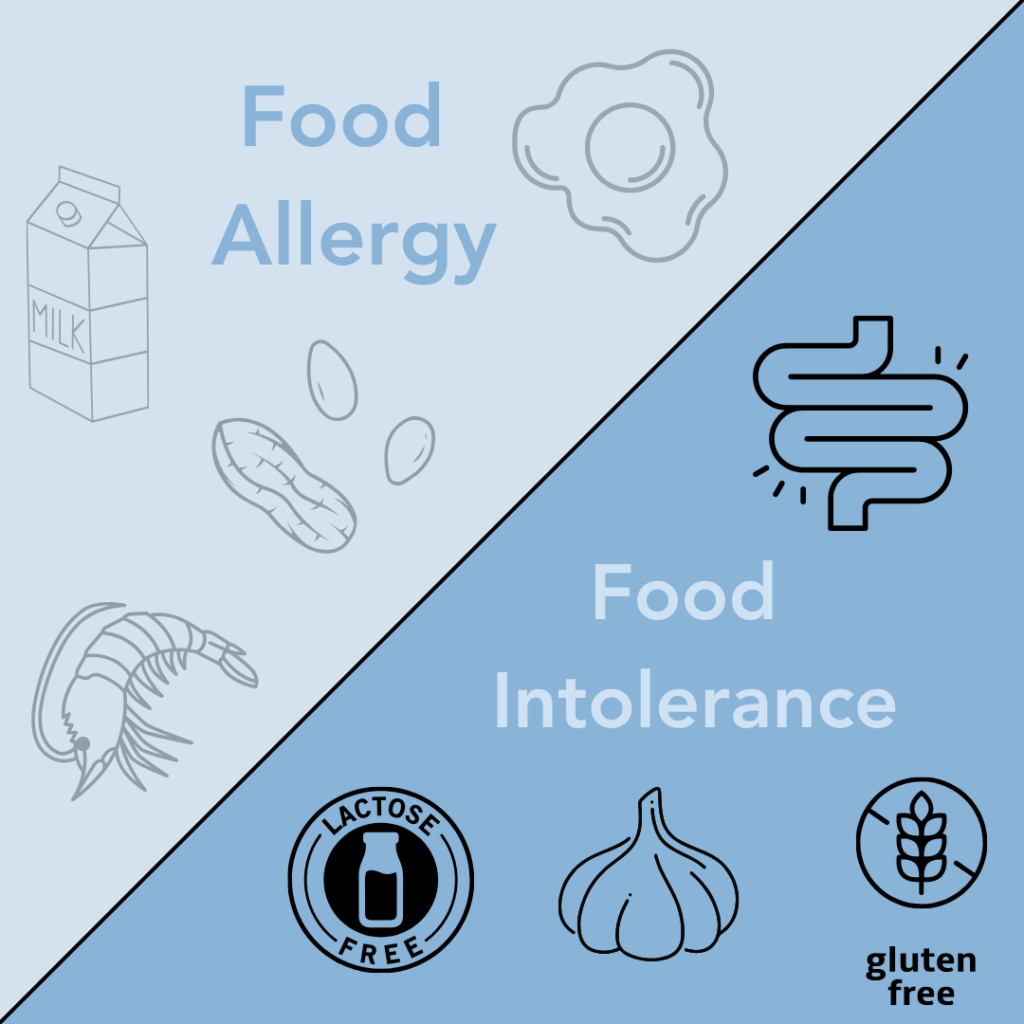
An allergy occurs when your immune system misidentifies a protein as harmful and mounts an emergency response. Some proteins or protein fragments, such as those found in peanuts or shellfish, are resistant to digestion, and in people with an allergy, the proteins that don’t get broken down during digestion are tagged by an antibody called immunoglobulin E. This fools the immune system into thinking that the protein is an invader, so your immune system attacks it and triggers an allergic reaction. The subsequent effects can include hives, shock, severe drops in blood pressure, respiratory distress, and anaphylactic reactions. As you can imagine, weight gain is not your primary concern if this happens—simply staying alive is the higher priority.
In contrast, food intolerance is much more subtle and can happen because of a number of physiological deficiencies, such as insufficient levels of the liver enzymes that dissolve fructose or low levels of the enzyme lactase, which can lead to an intolerance of unfermented dairy products (the fermentation process involved in making, say, yogurt tends to significantly reduce levels of lactose). Gluten intolerances are also common, although many people who believe they have gluten issues may have an entirely different problem. Most gluten-containing foods also contain gliadin. If you have a subclinical sensitivity to gliadin, consuming these foods can cause an inflammatory response in the small intestine. This sensitivity is more common in people of Northern European and Eastern European descent.
The symptoms of all these food intolerances can be similar to those of food allergies, but they’re not as pronounced. But both allergies and intolerances involve an inflammatory response, which can lead to weight gain if you consistently consume foods you can’t tolerate.
Cyrex Laboratories and Zoomer offer highly accurate food intolerance and allergy panels. Rather than giving you a frustrating and inaccurate laundry list of foods you are never supposed to touch again, these tests identify a targeted list of foods to remove from your diet without an annoying false-positive list of foods you’re not allowed to eat. For example, Cyrex’s approach to testing for reactivity to cooked, processed, and raw foods sets the laboratory apart from its competitors because once a food is heated to 118 degrees Fahrenheit or more, its protein structure and potential for triggering an antigen reaction may change. After all, a person’s inflammatory response to cooked chicken may be far different from the response to raw chicken.
For additional information on comprehensive lab testing, you can check out this recent audio podcast solosode I recorded all about testing.
4. Micronutrient Deficiencies
If you have spent any time trying to balance your diet, you have undoubtedly heard the term macros, which refers to the three macronutrients: protein, carbohydrates, and fats.
While these are crucial nutrients, they don’t even begin to cover all the vitamins, minerals, and other micronutrients that your body needs to function at a basic level.
Research has shown that specific micronutrient deficiencies are associated with weight gain and obesity. Among these micronutrients, the most significant are vitamin D, chromium, biotin, thiamine, and antioxidants. Deficiencies in these micronutrients can prevent fat loss via mechanisms that include altered insulin gene transcription, amplification of intracellular insulin signaling, and changes to glucose and amino acid metabolism. Metabolism and weight loss are also negatively affected by deficiencies in magnesium, boron, vitamin A, vitamin K2, and choline.
Micronutrient deficiencies can be caused by digestion issues or, because many micronutrients are fat-soluble, fat deficiencies and malabsorption. How much of which micronutrients are needed varies from person to person (a diversity that I first discovered in Roger Williams’s book Biochemical Individuality). For example, some people have higher rates of excretion of micronutrients than retention, and people with tuberculosis have far greater needs for vitamin C and vitamin A. While it is unlikely that you have tuberculosis, you get the idea: different people have different nutritional requirements.
Due to this nutritional diversity, it is worth investing in a laboratory test to determine whether you are deficient in any micronutrients. A comprehensive micronutrient test measures a host of vitamins, antioxidants, minerals, fatty acids, and amino acids in your blood to determine sufficiencies and deficiencies, along with giving clues about toxins, chronic inflammation, fungus, yeast, neurotransmitters, and more. A good at-home micronutrient test is the Metabolomix by Genova Diagnostics, which can help identify nutritional deficiencies that may be causing resistance to fat loss.
5. Hypothyroidism
The thyroid gland produces hormones that regulate metabolism. It secretes thyroxine (T4) and triiodothyronine (T3), which influence the metabolic rate of lipids, cholesterol, glucose, and proteins within the cells throughout your body.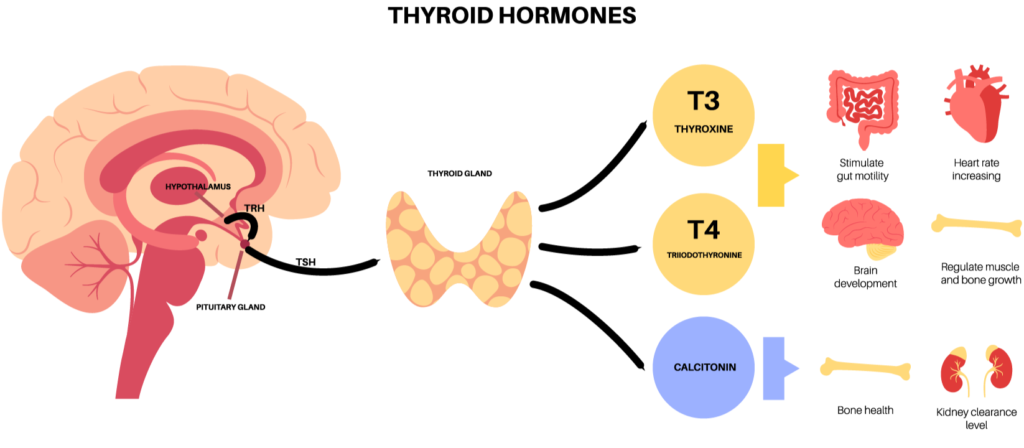
When the thyroid becomes underactive, it results in a condition called hypothyroidism, which can often cause weight gain.
What causes hypothyroidism? In adults, it can be due to deficiencies in iodine and selenium but can also occur as an anomaly at birth known as congenital hypothyroidism. Excess stress can cause disorders of the hypothalamus that reduce levels of T3 and T4. Long-term caloric or carbohydrate deprivation can also reduce thyroid activity.
As you can imagine, when you combine hard exercise, a busy work life, and a lack of sleep, the thyroid takes a big hit.
For example, the lowest thyroid activity I have ever experienced was when I was a skinny, carbohydrate-restricting IRONMAN triathlete, and the only factor saving me from the stereotypical endurance athlete “muffin top” was my extreme level of physical activity.
If you suspect that you have hypothyroidism, you can get a comprehensive blood test for thyroid activity or a resting metabolic rate (RMR) test to evaluate whether your metabolic rate is too low. If you do identify thyroid-related issues that are holding you back from burning fat, you can, as ironic as it may seem, consider slowing down and not starving yourself.
Overtraining and excess calorie or carbohydrate restriction are key contributors to thyroid-related weight-loss resistance. Back-to-back days of weightlifting or empty miles of the same ho-hum pace, limited recovery days, and the absence of recovery weeks are all tough on thyroid function. In addition, you can seek out nutrient-dense, thyroid-supporting foods: seaweed and dulse for iodine; Brazil nuts, shellfish, and oysters for selenium; and coconut oil for proper thyroid conversion and metabolism in the gut. Heavy exposure to chemicals like ingested fluoride, polychlorinated biphenyls (PCBs), bisphenol-A (BPA), and phthalates are also problems for the thyroid. Coleus forskohlii, L-tyrosine, bioperine, and perhaps most notably the T2 hormone (3,5-diiodo-L-thyronine) can assist with thyroid gland function.
These can all be found in an impressive supplement designed by my former podcast guest Dr. Amie Hornaman (you can check out our episode together here) called Thyroid Fixxr, which can noticeably improve your body’s ability to burn fat without the jittery, hyper side effects of common fat-burning stimulants.
6. Lack of a Regular Eating Schedule
Research suggests that for some people, maintaining a regular eating schedule can improve the metabolic response to meals.
If you're having trouble losing weight, rather than skipping breakfast some days and eating it on others, or having dinner late some nights and early on others, or constantly switching between different restaurants for lunch, you should establish more consistent meal patterns.

Heck, I have had clients who shed pounds simply by eating the same meals (a smoothie for breakfast, a salad for lunch, meat or fish and vegetables for dinner) at the same times day in and day out for a few months.
Women seem to benefit most from this type of regularity. In one study of healthy lean women, an irregular meal pattern resulted in lower postprandial metabolism than a regular meal pattern. In another study, lean women who ate meals on a regular schedule had better insulin sensitivity and improved blood fat levels. In yet another study, this time of healthy obese women, regular mealtimes increased postprandial thermogenesis, insulin sensitivity, and blood lipids, putting the women in a state more conducive to weight loss.
Some folks can thrive on an erratic eating schedule. But for many people, irregular meal times seem to significantly lower the metabolic rate compared to regular mealtimes. The result can be dysregulated appetite and altered metabolism. So if you don’t have a structured eating schedule and you are having trouble losing weight, try eating at the same times every day for a while, and keep the volume and nature of the meals relatively consistent.
Not sure *what* to eat? Here are a few articles to help get you started:
- What I Eat In A Typical Day: Ben Greenfield’s Average Breakfast, Lunch & Dinner (Along With A Few Tasty Health & Biohacking Tips!)
- The Real Truth About What To Eat Before, During And After Your Workouts & Races.
- What Is The Perfect Human Diet? Beginner, Intermediate & Advanced Meal Plans From Ben Greenfield That Tell You Exactly How To Eat For Your Unique Body.
- What Do YOU Eat Every Day?
Summary
Armed with the strategies you’ve just uncovered, it’s time to take action, dial in your approach, and finally get the results you’ve been striving for.
It’s not just about grinding harder in the gym or cutting more calories—it’s about understanding how your body is responding to the hidden forces that might be sabotaging your efforts. Whether it’s dialing in your nutrition to support hormonal balance, reducing your exposure to environmental toxins, or testing for micronutrient deficiencies, there are tangible steps you can take to optimize your body and start seeing real results.
Your body has incredible potential, and by addressing these underlying issues, you can unlock fat loss and reclaim your health in ways you never thought possible.
Additionally, if you're also looking for more insights into your health and wellness, you'll be happy to hear that I just finished updating and editing my best-selling book, Boundless. The brand new version of Boundless covers everything you could possibly want to know about optimizing your health and longevity, including how to boost your mitochondrial function, reboot your circadian rhythm, increase your libido, manage chronic conditions, enhance your mind using new smart drugs and peptides, reverse aging, improve sleep, burn fat, maintain health routines at home and while traveling, and much more!
If you're ready to uncover a treasure trove of the latest science-backed strategies for improving every aspect of your mind, body, and spirit, you can click this link to pre-order your new updated copy of Boundless.
Have any questions, comments, thoughts, or feedback? You can drop me a line in the comments below, and I'll be sure to respond!


What supplements you recommend with low T3 and T4 and low ths and hormones
Good day Ben.
Any foods/herbs in particular that you would recommend for fat loss? I have been struggling in this area for years.
Thanks,
Brendan